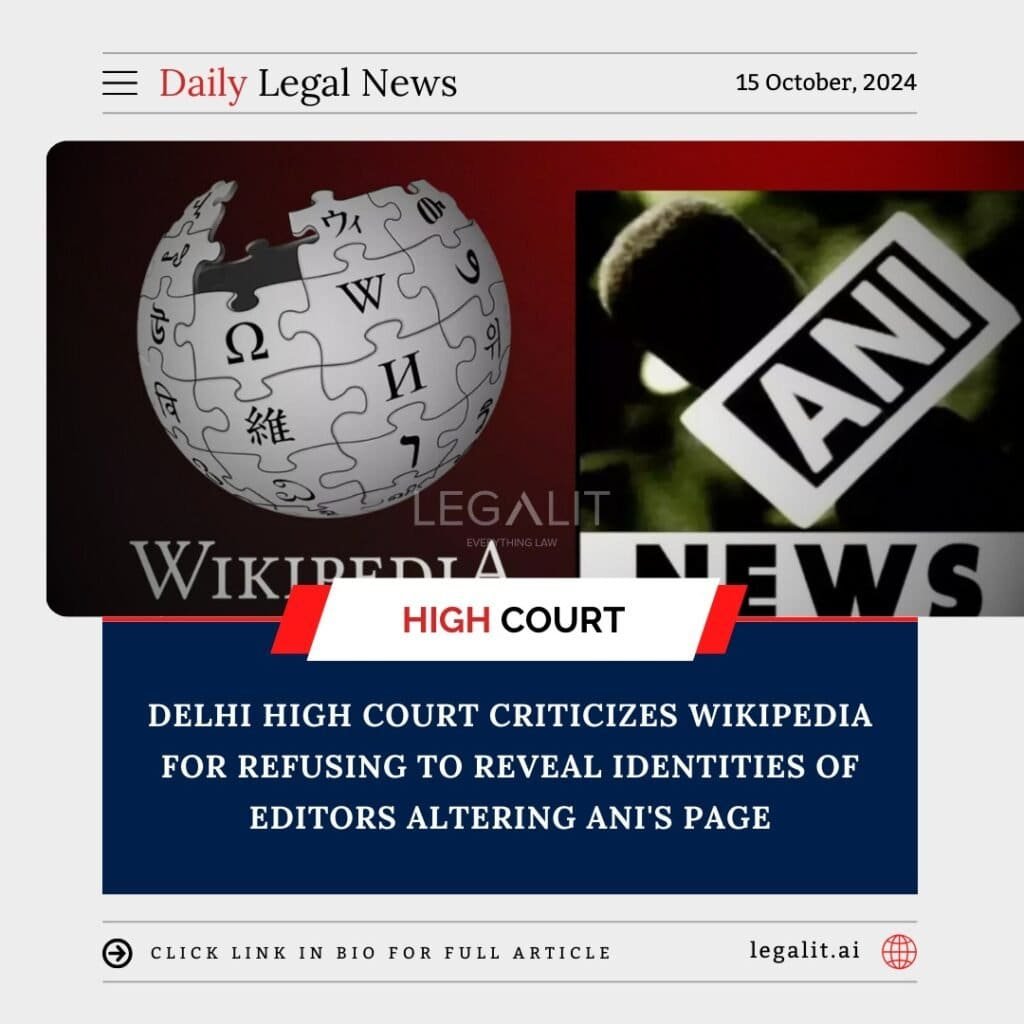
Background:
In a case brought before the Delhi High Court, a significant issue emerged regarding Wikipedia’s refusal to disclose the identities of individuals responsible for editing the Wikipedia page of Asian News International (ANI), a major Indian news agency. ANI alleged that its page had been repeatedly altered with malicious intent, damaging its reputation. As Wikipedia functions as a platform with user-generated content, it allows anonymous editing, which complicated ANI’s attempts to trace the individuals behind these modifications.
Court’s Ruling and Reasoning:
The Delhi High Court strongly criticized Wikipedia for its stance on not revealing the identity of these editors. The court underscored the need for accountability, especially when such actions could harm the reputation of an entity. It argued that while Wikipedia offers an open-edit platform, there should be mechanisms to ensure that individuals using the platform for malign purposes can be held accountable. The court’s primary concern was that anonymity should not become a cover for defamation.
In this case, Wikipedia had refused to share the IP addresses or any identifying information of the users who edited ANI’s page, citing its privacy policies and the nature of its platform. The court, however, maintained that the refusal to cooperate hindered justice, especially when reputational harm was at stake.
Implications of the Judgment:
The court’s stern remarks could have far-reaching implications for Wikipedia and similar online platforms that allow anonymous edits. While such platforms promote free expression and participation, the judgment highlights the growing tension between privacy rights and the need for accountability. This case could potentially set a precedent for online platforms being compelled to reveal editor identities in cases involving defamation or misinformation.
Furthermore, the court’s decision could prompt online platforms to rethink their privacy policies, particularly in jurisdictions where legal complaints arise over user-generated content.
The Need for Reforms in Digital Accountability:
This case brings to light the urgent need for reforms in digital media accountability, particularly in India where social media and online content play an influential role. Platforms like Wikipedia, which rely on the contributions of anonymous users, may need to establish stricter monitoring mechanisms, especially in cases where false or defamatory content could cause significant harm.
Conclusion:
The Delhi High Court’s criticism of Wikipedia’s refusal to divulge the identities of users responsible for altering ANI’s page shines a spotlight on the delicate balance between privacy rights and accountability in the digital world. As online platforms grow in influence, there is a growing need to ensure that they can be held accountable, especially when their services are misused to harm the reputation of individuals or organizations. This case could lead to broader discussions and potential reforms in how platforms handle anonymity in cases involving defamation or misinformation.
[ajax_laod_more]